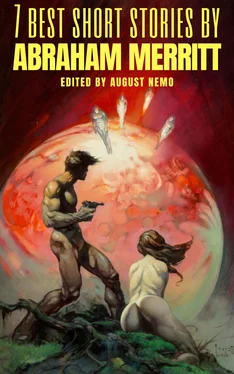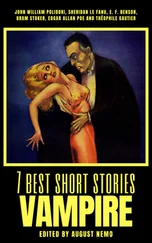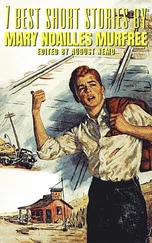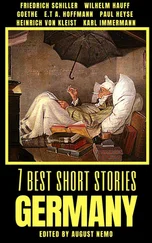Martin said: "Whoever you are, wherever you are, we trust you. Here is the story—"
For fifteen minutes Narodny and the Chinese listened to their tale of struggle against the robots, of their escape and of the blasting of Copernicus in the effort of the Wrongness of Space to prevent their return.
Narodny said: "Enough. Now I understand. How long can you remain in space? I mean—what are your margins of power and of food?"
Martin answered: "Six days."
Narodny said: "Ample time for success—or failure. Remain aloft for that time, then descend to where you started—"
Suddenly he smiled: "I care nothing for mankind—yet I would not harm them, willingly. And it has occurred to me that I owe them, after all, a great debt. Except for them—I would not be. Also, it occurs to me that the robots have never produced a poet, a musician, an artist—" He laughed: "But it is in my mind that they are capable of one great art at least! We shall see."
The oval was abruptly empty; then it too was gone. Bartholomew said: "Call the others. I am for obeying. But they must know." And when the others had heard, they too voted to obey, and the space-ship, course changed, began to circle, as slowly as it could, the earth.
Down in the chamber of the screens, Narodny laughed and laughed again. He said: "Lao, is it that we have advanced so in these few years? Or that men have retrogressed? No, it is this curse of mechanization that destroys imagination. For look you, how easy is this problem of the robots. They began as man-made machines. Mathematical, soulless, insensible to any emotion. So was primal matter of which all on earth are made, rock and water, tree and grass, metal, animal, fish, worm, and men. But somewhere, somehow, something was added to this primal matter, combined with it—used it. It was what we call life. And life is consciousness. And therefore largely emotion. Life established its rhythm—and its rhythm being different in rock and crystal, metal, fish, and so on, and man, we have these varying things.
"Well, it seems that life has begun to establish its rhythm in the robots. Consciousness has touched them. The proof? They have established the idea of common identity—group consciousness. That in itself involves emotion. But they have gone further. They have attained the instinct of self- preservation. And that, my wise friend, connotes fear—fear of extinction. And fear connotes anger, hatred, arrogance—and many other things. The robots, in short, have become emotional to a degree. And therefore vulnerable to whatever may amplify and control their emotions. They are no longer mechanisms.
"So, Lao, I have in mind an experiment that will provide me study and amusement through many years. Originally, the robots are the children of mathematics. I ask—to what is mathematics most closely related. I answer—to rhythm—to sound—to sounds which will raise to the nth degree the rhythms to which they will respond. Both mathematically and emotionally,"
Lao said: "The sonic sequences?"
Narodny answered: "Exactly. But we must have a few with which to experiment. To do that means to dissolve the upper gate. But that is nothing. Tell Maringy and Euphroysne to do it. Net a ship and bring it here. Bring it down gently. You will have to kill the men in it, of course, but do it mercifully. Then let them bring me the robots. Use the green flame on one or two—the rest will follow, I'll warrant you."
The hill behind where the old house had stood trembled. A circle of pale green light gleamed on its breast. It dimmed, where it had been was the black mouth of a tunnel. An airship, half-rocket, half-winged, making its way to New York, abruptly dropped, circled, and streaked back. It fell gently like a moth, close to the yawning mouth of the tunnel.
Its door opened, and out came two men, pilots, cursing. There was a little sigh from the tunnel's mouth and a silvery misty cloud sped from it, over the pilots and straight through the opened door. The pilots staggered and crumpled to the ground. In the airship half a dozen other men slumped to the floor, smiled, and died.
There were a full score robots in the ship. They stood, looking at the dead men and at each other. Out of the tunnel came two figures swathed in metallic glimmering robes. They entered the ship. One said:
"Robots, assemble."
The metal men stood, motionless. Then one sent out a shrill call. From all parts of the ship the metal men moved. They gathered behind the one who had sent the call. They stood behind him, waiting.
In the hand of one of those who had come from the tunnel was what might have been an antique flash-light. From it sped a thin green flame. It struck the foremost robot on the head, sliced down from the head to base of trunk. Another flash, and the green flame cut him from side to side. He fell, sliced by that flame into four parts. The four parts lay, inert as their metal, upon the floor of the compartment.
One of the shrouded figures said: "Do you want further demonstration —or will you follow us?"
The robots put heads together; whispered. Then one said: "We will follow."
They marched into the tunnel, the robots making no resistance nor effort to escape. Again there was the sighing, and the rocks closed the tunnel mouth. They came to a place whose floor sank with them until it had reached the caverns. The machine-men still went docilely. Was it because of curiosity mixed with disdain for these men whose bodies could be broken so easily by one blow of the metal appendages that served them for arms? Perhaps.
They came to the cavern where Narodny and the others awaited them. Marinoff led them in and halted them. These were the robots used in the flying ships—their heads cylindrical, four arm appendages, legs triple jointed, torsos slender. The robots, it should be understood, were differentiated in shape according to their occupations. Narodny said:
"Welcome, robots. Who is your leader?"
One answered: "We have no leaders. We act as one."
Narodny laughed: "Yet by speaking for them you have shown yourself leader. Step closer. Do not fear—yet."
The robot said: "We feel no fear. Why should we? Even if you should destroy us who are here, you cannot destroy the billions of us outside. Nor can you breed fast enough, become men soon enough, to cope with us who enter into life strong and complete from the beginning."
He flicked an appendage toward Narodny and there was contempt in the gesture. But before he could draw it back a bracelet of green flame circled it at the shoulder. It had darted like a thrown loop from something in Narodny's hand. The robot's arm dropped clanging to the floor, cleanly severed. The robot stared at it unbelievingly, threw forward his other three arms to pick it up. Again the green flame encircled them, encircled also his legs above the second joints. The robot crumpled and pitched forward, crying in high-pitched shrill tones to the others.
Swiftly the green flame played among them. Legless, armless, some decapitated, all the robots fell except two.
"Two will be enough," said Narodny. "But they will not need arms— only feet."
The flashing green bracelets encircled the appendages and excised them. The pair were marched away. The bodies of the others were taken apart, studied and under Narodny's direction curious experiments were made. Music filled the cavern, strange chords, unfamiliar progressions, shattering arpeggios and immense vibrations of sound that could be felt but not heard by the human ear. And finally this last deep vibration burst into hearing as a vast drone, hummed up and up into swift tingling tempest of crystalline brittle notes, and still ascending passed into shrill high pipings, and continued again unheard, as had the prelude to the droning. And thence it rushed back, the piping and the crystalline storm reversed, into the drone and the silence—then back and up.
Читать дальше

![Коллектив авторов - Best Short Stories [С англо-русским словарем]](/books/26635/kollektiv-avtorov-best-short-stories-s-anglo-thumb.webp)










